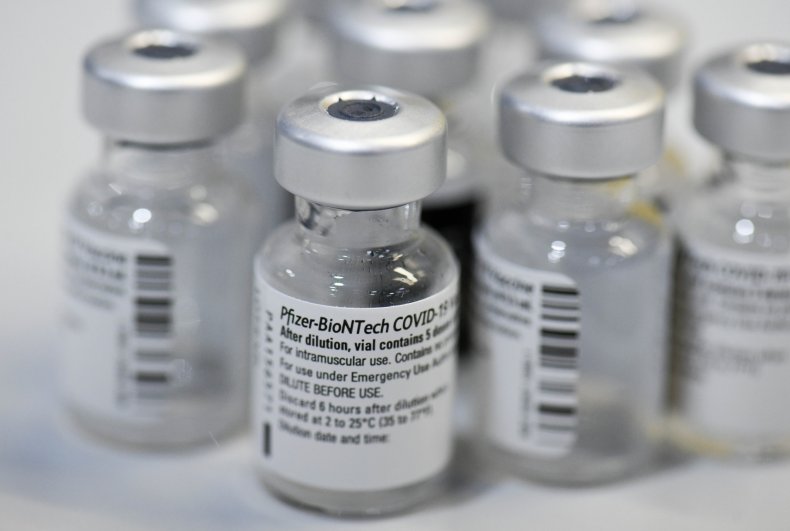Pfizer/BioNTech and Moderna, makers of currently the only U.S.-approved COVID-19 vaccines, are both establishing booster shots to improve defense against troubling new pressures of the infection.
The advancement of Pfizer/BioNTech boosters versus versions that could have resistance to present vaccines was revealed on Tuesday, according to Reuters.

THOMAS KIENZLE/ AFP/Getty
Both vaccines were established with a method that uses messenger RNA, or mRNA, a process that offers considerable speed benefits over approaches that have been generally utilized to produce vaccines. Pending testing and any regulatory obstructions, prospective booster shots might be ready for the general public within months.
The business have suggested that their existing vaccines, which presently consistent of two shots provided about a month apart, do use at least some protection versus the emerging variants. Early data recommends that the extremely contagious B. 1.1.7 strain that was very first identified in the U.K. and has actually rapidly spread out in the U.S. has little or no resistance to the present vaccines.
Nevertheless, information also recommends that the vaccines may be somewhat less effective versus the B. 1.352 stress. The South African variant results in a sixfold decrease in antibodies when challenged with an immune system that has actually received the Moderna vaccine, which the business stated was still “above levels that are anticipated to be protective.”
” Out of an abundance of caution and leveraging the versatility of our mRNA platform, we are advancing an emerging alternative booster prospect versus the variant very first recognized in the Republic of South Africa into the clinic to determine if it will be more reliable to improve titers against this and potentially future variations,” Moderna CEO Stéphane Bancel said in a statement on Monday. A titer is a measurement of concentration of something; the greater the titers, the more focused something– in this case, antibodies– is.
It is not clear if existing vaccines have been checked against the Brazilian P. 1 stress, which Minnesota health officials revealed had actually been discovered in the U.S. for the very first time on Monday. In addition to being more transmissible than dominant strains, experts have actually expressed issues that vaccines could provide less defense against the P. 1 variant since it has mutations to the infection’s “spike” protein that are similar to the B. 1.351 stress, which has not yet been identified in the U.S.
The capacity for further virus anomalies that might lead to a more fatal kind of COVID-19 or a higher resistance to vaccines increases as the pandemic continues due to the virus having more chances to alter inside the bodies of those it infects.
Newsweek reached out to Pfizer for comment.
No comments:
Post a Comment